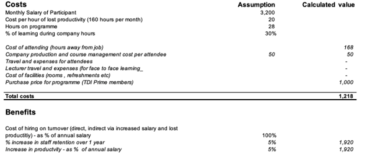P2P, or not P2P: that is the question!
It’s a little over two months since Lemonade started selling renters and home owners insurance to New Yorkers. At the time, and to coincide with the September launch, I chatted with Daniel Schreiber and published this post. In it, I made this claim;
”after today, this industry will never be the same again!”
To see how Lemonade have fared in their early days, I caught up again with Daniel. To say they are delighted is an understatement. Even customers are tweeting their delight at buying Lemonade insurance. Seriously!
The P2P question and does it really matter?
First, lets get this one out of the way.
Lemonade are not a P2P Insurer. Despite their pre-launch branding as the world’s first full-stack, P2P insurance carrier, they are not really a P2P.
To be fair, there is no clear definition of P2P Insurance. It’s not as mature or established as the oft confused with 2-sided market that is P2P Lending. (See here for my back catalog of InsurTech articles I’ve written on P2P Insurance.)
And in spite of the many different ‘hows’ that span the 3 Waves of P2P Insurance, there is one defining characteristic they all have in common. This is especially true for Lemonade. And it comes down to customer behavior and trust.
The P2P Insurers argue that trust has broken down between the insured and the insurer. Neither party trusting each other to be honest and fair. Both sides betting that the other will lose. In the end, everyone loses, classic prisoner’s dilemma!
The P2P Insurers all believe they can change conventional insurance customer behavior. Making insurance fair and transparent and connected to the others in your peer group. This plays to the moral hazard argument that customer’s don’t care about embellishing a claim because they’re detached from whoever is footing the bill.
So, having said that, maybe I’m wrong about Lemonade and they do qualify for inclusion in my 3 Waves of P2P Insurance chart.
And the reason is simple. It is because Lemonade have bet their house on behavioral science. On influencing a different behavior from their customers based on trust. Surely, this is the defining characteristic of P2P Insurance, not how the P2P model works.
The Lemonade way is different, as I will explain through this article. Instead of building risk pools where biggest is best based on the Law of Large Numbers, Lemonade favour the Dunbar Factor. This is social science, not data science. Lemonade creates affinity pools where the optimum size is between 100 and 200 members. They can be smaller or larger.
So, having got the P2P question out the way, what’s the big deal with Lemonade?
They (simply) sell insurance, don’t they?
Yes, that’s true.
Only, they are doing it with a different attitude towards customers. The Lemonade business model has removed the adversarial conflict that exists in modern day insurance. Instead of turning unclaimed premiums to profits, Lemonade gives them away to the customer’s chosen charity or good cause.
First things first; Lemonade is a tech business that provides insurance. They are rightly called an Insurtech because they are a tech platform that uses AI, machine learning and a bot named Maya to provide customers with a better, faster, cheaper, totally mobile insurance product.
The comparison with Uber and Airbnb is obvious. Neither of these headline tech disruptors have created new markets per se. People have been renting rooms and hiring taxis for donkey’s years. It’s the same with Lemonade. There’s nothing new about renter’s insurance, but the way Lemonade ‘do it’ makes them (potentially) the InsurTech disruptor in personal lines insurance (at least in the West, although they’ve got a way to go before they can rival the scale of ZhongAn).
Two months in, how’s it gone for Lemonade?
To find out, I asked them.
“It (the launch) has exceeded all our expectations”, Daniel Schreiber, CEO and co-founder of Lemonade told me.
“When you build an insurance business from scratch, it has to be complete before you can go live. Start-ups talk about MVPs and failing fast, but in insurance, you have to go out there with a complete offering on day 1. We’re a regulated industry and you only get one chance to get it right.”

Whilst it is interesting to see a handful of tweets and a slug of investment from well-known VCs, I asked Daniel for any early indications that they were making a difference.
Lemonade are cheaper!
And that’s not just Daniel who is saying that.
Here’s what Dowling, the insurance-focused boutique research firm, had to say after they took a look at Lemonade through mystery shopping. They wrote;
“In an attempt to better understand Lemonade’s “killer” pricing, we “applied” for renters insurance through the Lemonade and Bungalow websites…the pricing was dramatically different as Bungalow’s annual price was ~5.6x Lemonade.”
Source: IBNR #37, Vol. XXIIISeptember29, 2016
For clarity, ‘renters insurance’ in the U.S. provides cover for contents and 3rd party liability for the tenant who is in rented accommodation. In the main, it’s small stuff that is being covered. The big risks are with the landlord or homeowner and covered by their buildings insurance.
But cheaper by 5.6 times, how can this be?
Well, it all comes down to their tech-based approach. Lemonade simply don’t have the cost overheads and legacy burden of the incumbents. They’re operating at about a 10th of the cost of a traditional insurer. This is a tech business after all!
It also reflects over-inflated pricing in the market that affects most low-value, simple cover products. This is the result of the insurance supply chain bearing overhead costs that are disproportionately large relative to the risk premium. It is simply not economically viable to sell these products at their real price point.
Without the same cost structures and by operating as a tech platform, Lemonade enables insurance to be undertaken in a way that is much cheaper for customers.
Granted, Twitter is not a scientifically sound base to make such a claim, but when customers start to tweet their pleasure at buying insurance, I’m inclined to take note.
Let’s face it; social media is not inundated with tweets and posts from satisfied insurance customers. Although there are plenty of examples of dumb behavior by an insurer (the latest one I saw on Linkedin was about a customer informing their motor insurer they would be doing significantly less miles in the next year. When questioned why the premium had gone up, the answer was “because you will be a less experienced driver.” When challenged how they reached that conclusion, the answer was “you may become unfamiliar with the pedals”. Stupid is as stupid does!).
Lemonade are creating new customers
Seriously! It would seem so.
Early data suggests that as many as 80% of those buying Lemonade’s renters insurance don’t have existing insurance already. They’re buying it for the first time!
And c50% of those buying Lemonade’s insurance havn’t bought any insurance product before.
Lemonade are appealing to those who haven’t bought insurance before
Which does kinda make sense when you think about Lemonade’s market for renter’s insurance. Typically, the demographic is a younger customer, lower income, possibly a student. It will be interesting to see how this all stacks up from the customer data Lemonade are promising to put out in the New Year. (Here’s the data that lemonade put out after the first 48 hours of trading).
How different are Lemonade, really?
In simple terms, the traditional insurer’s business model is to two things. They use premiums as a float for making investments (the primary source of profit for insurers) and they make underwriting profit (which is the insurers incentive to pay lower claims).
Lemonade’s business model is the polar opposite.
They don’t invest premium income; they leave the money in the account. And they don’t make an underwriting profit.

Having said all of that, when I talked with Daniel about being a “disruptor” he played it down. They may be new and innovative, but they still use underwriting and they pool premiums and they settle claims.
And lets not forget, they are regulated in one of the toughest jurisdictions in the U.S. They still have to adhere to the regulatory environment that applies to all insurance businesses, paper or digital, young or old.
What about the question of instant payouts?
Lemonade may be different in many ways, but this focus on customer behaviour has to be the one thing that will make or break them. I asked Daniel about fraud and could they really deliver on their promise.
“This (fraud) is going to be one of Lemonade’s greatest strengths“, he told me. “Of course, we will suffer fraud, but we expect to reduce it. Fraud is a self-fulfilling prophecy and if we treat customers as liars we will see the same levels as everyone else.
“In insurance, 90% of fraud is through embellishment. The industry uses deductibles and difficult processes to deter customers with a “that’ll learn ‘em!” mentality. Rather than throw the book at them, let’s understand why upstanding citizens think it’s ok to make an embellished claim?”
Daniel has an overwhelming belief in the good nature of mankind. And he has the data and evidence to back up this belief. I, for one, am convinced that the maturity of the Lemonade model make them look like the adult teachers whilst the existing insurance industry squabble like school children in the playground.
Lemonade simply wants to bring out the best in people! And there’s a ton of data that shows this is transformation that can be achieved.
As I said at the outset, the insurance industry will never be the same again, and I stand by prediction!
If you want to hear Daniel directly, watch this video from the InsurTech Connect conference in Las Vegas last month.
The author, Rick Huckstep, is an InsurTech thought leader and editor of InsurTech Insights for The Digital Insurer.


























































